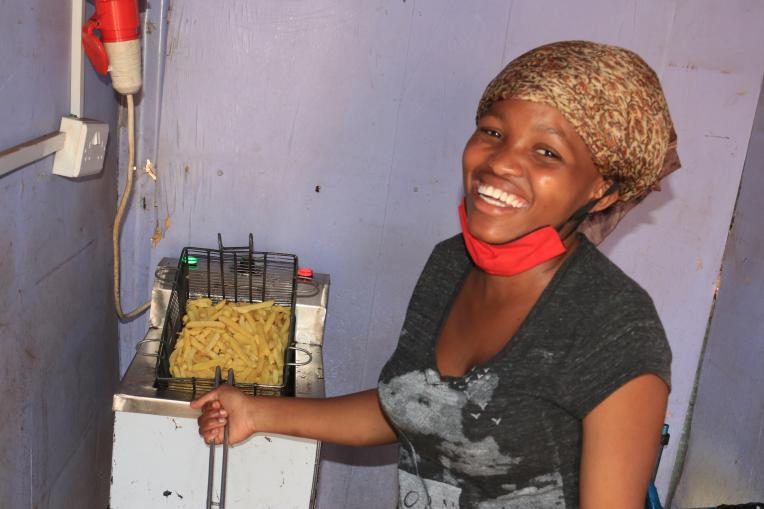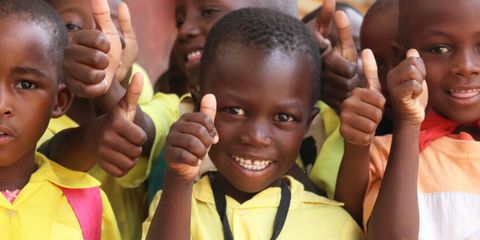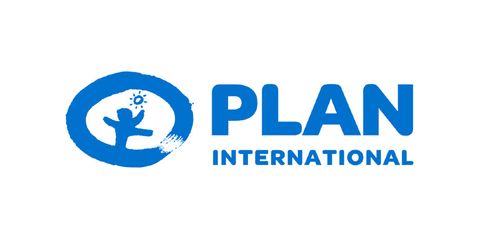14 AUGUST 2020
The COVID-19 pandemic has resulted in severe economic and social impacts around the world. Youth are particularly vulnerable to the disruptions the pandemic has caused and many are now at risk of being left behind in education, economic opportunities and general well-being.

Pauline, 23, Grace, 21, and Prisca, 24, are girls from an informal settlement in Kibera who are defying the test of the pandemic. They thought outside the box and came up with innovative ideas of surviving after being pushed down by the crisis.
Pauline
Pauline used to sell food at a construction site when COVID-19 hit the country. She had just completed a course in hospitality that was sponsored by the Girls Advocacy Alliance project. Through selling food at the construction site, she was able to provide for her family and even support her parents since she is the firstborn in a family of 5 girls.
“At the onset of COVID-19, everything came to a stop. My life changed in a big way, I could no longer continue with my business because all gatherings were prohibited and physical distancing was the order of the day. I closed my business and went home. Things were not easy at home. We were unable to meet our basic needs and it occurred to me that something needed to be done,” said Pauline.
We were unable to meet our basic needs and it occurred to me that something needed to be done.
Personal initiative
Pauline and her friend Quinter decided to join their male counterparts in the ‘Kazi Mtaani programme’ to work as labourers. Kazi Mtaani programme is an economic lifeline for the youth in Kenya that was set up specifically for the able-bodied youth to provide a source of income and is aimed at improving public hygiene standards and undertake civil works during this time.
“We needed something to do and we did not have the luxury to choose the type of work, all that we hoped for was to get an honest source of income. We applied through the chief’s office and we were lucky to secure a slot in the programme.
“The work is not easy especially for us girls, but what does not kill you makes you stronger. As a group, we do sewage cleaning, garbage collection and sweeping along the streets. The programme has cushioned us from the effects of COVID-19 because as we speak we can meet our needs and those of our families. We are paid after working for 11 days on a rotational basis. In a day one receives Ksh 450 that means after 11 days we earn a total of Ksh 4,950 (€ 42),” explained Quinter.
“I urge my fellow youth to enrol and take part in this programme to help them survive and shun away from evil and dangerous activities. COVID-19 should serve as a wakeup call for us to be creative and start our income-generating sources for the future. As girls, we see the future is bright and we hope that more opportunities will come our way,” added Pauline.
Grace
After the lessons and training by Plan International on empowerment and self-reliance, Grace decided to start a fast-food business where she sells chips (fries). COVID-19 stopped her hustle and therefore it challenged her to think about how to survive.
Savings
“The small money that I got from Plan international as transport reimbursement and allowances for attending seminars helped me to start the business. I opened an Mshwari account (mobile savings account) via my phone and saved not knowing that one day the small amount would help me to start a business.
I opened a mobile savings account via my phone and saved not knowing that one day the small amount would help me to start a business.
“Before COVID-19, I used to participate in community dialogues, where we moved from one community to another to empower members on different topical issues affecting the community. I also used to work with a local CBO called ‘Tembea Kibera’, which dealt with cross-cultural exchange and that involved taking international visitors on a tour of Kibera to learn and see how life is. The pay I received enabled me to cater to my needs. COVID-19 brought that to a stop.”
Lessons
“One thing I have had to learn through this period is that it has challenged the youth to explore how well they can survive with the little resources they have. I have seen many creative ideas from youth who were previously unemployed and yes, they made what seemed impossible to work.
“My business has cushioned me and my family and I truly cannot complain. I am thankful to God for the journey he has taken me through. I urge my fellow youth to create a saving culture and believe that everything will be alright,” explained Grace.
Prisca
Prisca is also one of the girl advocates under the Girls Advocacy Alliance project who has taken the effects of coronavirus positively and decided to find something to do to earn a living. COVID-19 affected everyone not only in Kenya but also across the world. A large number of the youth have been rendered jobless. COVID-19 has made her find a means to survive. She has started a food business that has allowed her to provide for her 2 children.
“My business has enabled me to sort my immediate needs like buying sanitary towels, clothes and food for the family. I sell rice and stew to people around my home. I get approximately Ksh. 500 (€ 4) a day and that is what I live with. I pray and hope that this business will continue even after the virus ends.
My business has enabled me to sort my immediate needs like buying sanitary towels, clothes and food for the family
“As the world celebrates International Youth Day on 12th August 2020, I urge my fellow youths across the world to be strong and find something to do to cushion themselves against the pandemic,” said Prisca.
Emergencies, COVID-19

